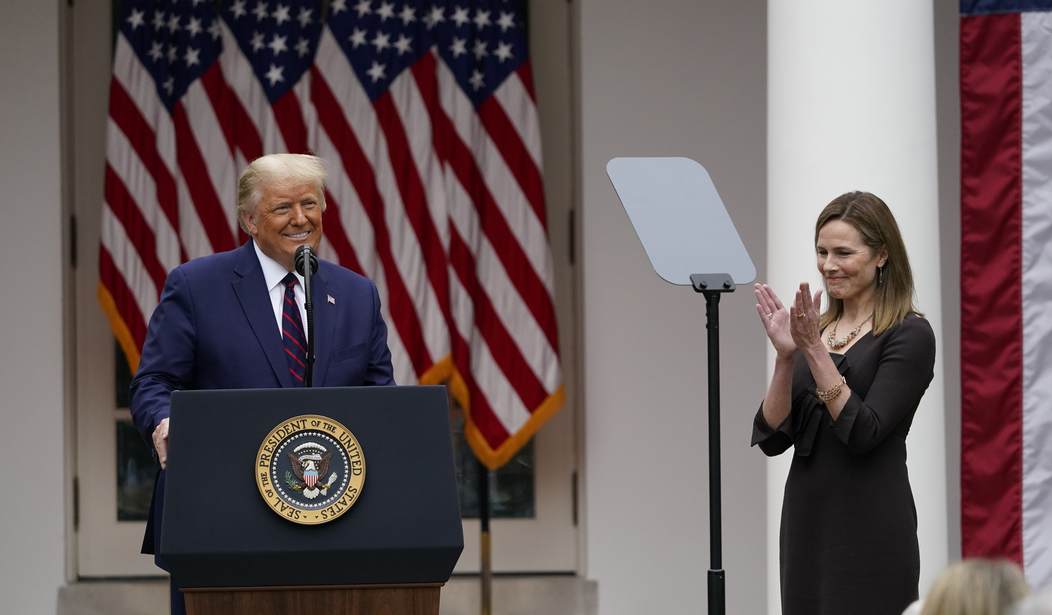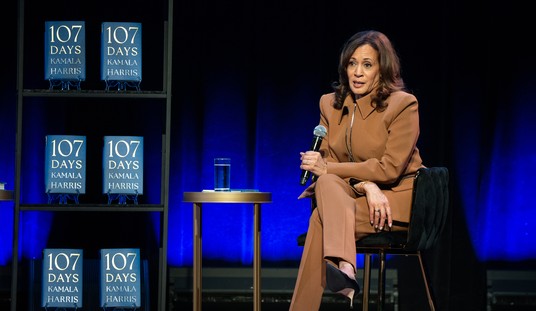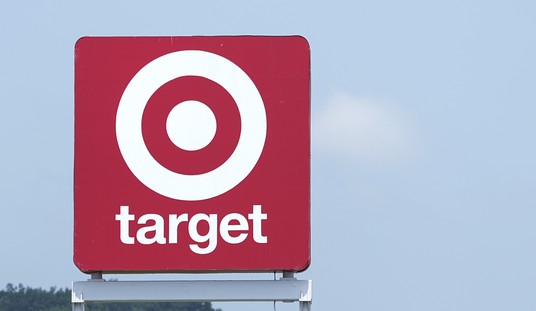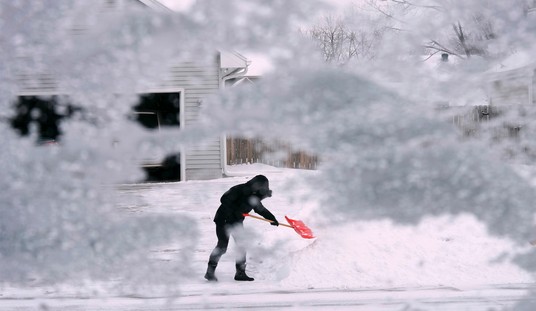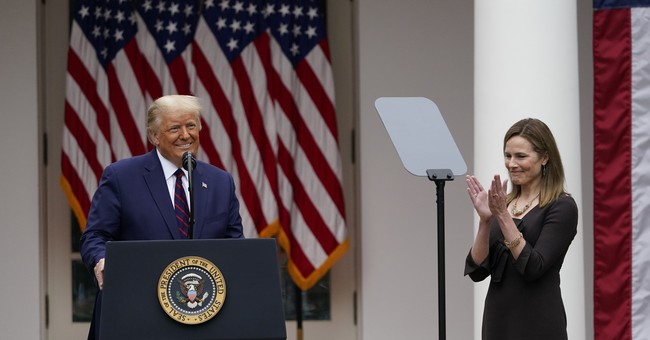
Derek Muller, who grew up in suburban Detroit, went to law school at Notre Dame. Most of the students who attend the private, Catholic university in South Bend, Indiana, go on to practice law in a firm or strike out on their own.
Amy Barrett was my Evidence professor. She's been exceedingly generous with her time & an important mentor to me, as the field of Notre Dame Law alumni-turned-law professors is fairly small. I'm thrilled to see a good & decent person, & a crisp & clear writer, nominated.
— Derek T. Muller (@derektmuller) September 26, 2020
But that wasn’t Derek’s path. He’ll be the first to point out that Notre Dame isn’t the usual route when someone’s thinking of becoming a law professor. But it was his; until recently, you could find him as an Associate Professor at Pepperdine University in Southern California; now, he’s at Iowa. And it was the same path his former professor and mentor, Judge Amy Coney Barrett, took.
He explains:
“It’s one of the things that happens in the Academy (the legal academic world), generally, but in a lot of the world, where there’s a lot of elitism. There’s a lot of resume bias, letterhead bias. It’s sometimes hard to identify what the cause is in those areas. One is, obviously, the network effect — a phrase that people will use — where [people say to themselves]: “If I went to Harvard and Yale, I know a lot of people at Harvard and Yale. Therefore, I trust the judgment of the recommenders of the people at Harvard and Yale. There ends up being this sort of pernicious cycle, where you consistently refer back to the people or things you’re comfortable with.”
Indeed. As Derek points out later in our interview, if Judge Barrett is confirmed by the U.S. Senate to the United States Supreme Court, she will be the only, sitting member not to graduate from Harvard or Yale.
He also addressed how this plays out in what he calls the Legal Academy. “In a lot of law schools, it’s a very competitive process. There are only 200 law schools in the country, and hiring is very selective. More than a third of law professors come from two schools.” Guess which two?
He continues:
“There’s a little bit of a ‘chicken and egg’ problem here. A lot of the time, the best students in the country pick those places. There’s no question that a lot of people choose that, but not everyone does. A different side is, when it comes to coming out of a school like Notre Dame where I was, the students, the faculty was really great, really supportive, with a strong career office, really outstanding, judicial clerkship placement. The same with placement in law firms.”
In Derek’s situation, “the faculty was really supportive of [his] interest” to become a law professor — though, he was the only one in his class of about 180 students. He points out that places like the University of Chicago, Yale, and Harvard have essentially “boot camps,” what he called “institutional structures” for students on the professor career track. So, he was exceeding fortunate to have, among the small group of people, an advocate like Amy Coney Barrett.
He says it was important “[h]aving someone like Amy (Barrett) to be a sounding board, to rely upon, to hear about her experience, and to know that she experienced some of the same kinds of difficulties that you have coming out of a great school like Notre Dame — but not in the inner circle of the elite institutions.”
Derek mentions that his experience has been echoed by other, former students of Barrett, including Laura Wolk, who became the first blind woman to clerk for a Supreme Court justice — with Justice Clarence Thomas — through her professor’s kind and diligent mentoring.
In an interview with CBS News, Wolk spoke about the “servant advocate” role Barrett personally played for nearly everyone who interacted with her.
She said, in part:
“….[A]ll of her clerks at the courts, and all of her colleagues on the Notre Dame faculty, and any student that you would talk to who ever had her as a professor [would tell you] she is an amazing mix of a brilliant person, who is also extraordinarily warm and caring and giving,
[…]
As a professor, [her brilliance] never stood in the way of her relationships with her students. She was able to mix her teaching ability with a warmth and an approachability that allowed me…. [and] other students that I had the pleasure of attending Notre Dame with [to come to her] with things that had nothing to do with the classroom setting. Just life struggles or adjusting to law school….”
Wolk also referred back to Judge Barrett’s acceptance speech, in which she talks about her life being filled with relationships. It’s something that Derek prizes, too, and mentioned that his mentor’s “welcoming and inviting” quality mirrored that of Notre Dame’s faculty generally. His own experience in the classroom with Barrett was one class in 2006, “Evidence,” but he goes on to say “she talked with [him] about a judicial clerkship, or talking with her about some article ideas — [he] was starting to draft some ideas. Asking her advice on interviewing for academic jobs.” They would also often run into each other at academic conferences, when they would get a chance to talk.
He continues:
“She’s just been the kind of person who I’ve been able to go back to….With Amy coming from Notre Dame Law School, the same institution, and understanding what a special place it is, and also some of the challenges for people who don’t come from one of a couple of law schools in America and train at Legal Academy. She was very helpful on that front.”
Just as Wolk explained, the personal aspect of the relationship is special to Derek and his family, too:
“We have some things in common; My wife and I have adopted a child, and I talked with her a little bit about the adoption process. Our child has special needs. And last spring, I got a chance to go to Notre Dame to teach there for the spring semester. Before I went, I called her up and asked, ‘So, can you help me out on how to navigate the services for children with special needs in South Bend?” And she took a long time on the phone, just walking me through some of the things she went through and helped us get situated before we headed into town for the semester.
She’s very generous with her time, and very kind in terms of providing that kind of advice and support for former students. It would be easy [for her] to say, ‘It’s a little hectic right now,’ or ‘Here’s a website where you can go to get some resources.'”
Judge Barrett even counseled Derek and his wife when they were considering adoption:
“Pretty early on in the process, where we were talking about it, just asking her about her experience….We were going through a domestic, foster-to-adopt process [not an international adoption]. It takes a lot of patience to get through an adoption process, let’s just put it that way: it is years of study and regulations and paperwork and waiting games….It takes a certain kind of spirit to make it through that kind of process. I think there were times when I wanted to give up on the process, and she was able to express how — despite the many frustrations you have in the process — there is still something deeply rewarding at the end, if you’re able to provide a home for a child in need.
It was an important reminder, as I started the process, as I was going through it, that….there’s something much more important on the other side, which is providing that support and stability to a child.”
It appears that Americans might not only be getting another Conservative on the High Court, but a truly good person, too.

